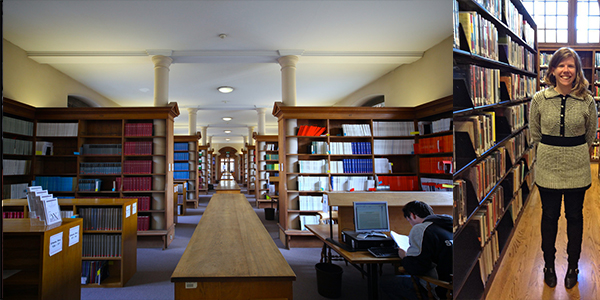Library Science
All of us admire the century old Library Science which were the fountains of knowledge & continue to motivate every individual to have his own library.
” Knowledge store house” , ” Treasure of the Prints ” and many more titles are sufficient to highlight the importance of a Library. History stands as a proof that Libraries & Information centers generated the inventors, discoverers, Nobel laureates, great writers & humans of impeccable character. What’s most significant is how come a ” Library & Information center” can make them so great. Then a closer look speaks the voice of a Librarian who is in-charge of such Libraries & Information centers and has made & used all his efforts develop the library.
This article gives the inner view on a career in Library & Information Sciences which is among the top ten most coveted professions in developed countries.
Courses on offer
- Certificate Course in Library Science.
- Diploma in Library Science.
- Bachelor of Lib & Info Science (B L I Sc).
- Bachelor of Library science (B L Sc).
- Masters in Lib & Info Science (B L I Sc).
- Masters in Library science (B L Sc).
Subjects studied
Library & Information Processing and Retrial, Management of Libraries and Information Centers, Research Methodologies, Statistics and their Application to Library Information Science, etc..
Eligibility :
- Certificate & Diploma Courses : 10+2 ( any stream ).
- Bachelor Courses : Diploma in Lib Science or Graduation ( any stream ).
- Master Courses : Bachelor’s degree in Library Science.
Why is the demand for Library & Information science professionals ?
- Increasing number of Colleges & other educational enterprises need qualified & trained librarians. Moreover, librarians in academic libraries are, in financial terms, on par with teachers.
- Improvement in the documentation, analysis & effective organization of innumerable data in the form of Books, Journals, Research Projects, Audio & Video cassette’s.
- Catering to the various sections of the society we have public libraries, academic libraries, religious libraries, technical libraries etc.. which are need information specialists.
Nature of work
A librarian can work in the following categories.
- User dependent services: Librarians working in this department help the user to find the information they need. Its helping the visitors get “ what they want”.
- Technical & concentrated services: Librarians working in specialized libraries (Medical, cultural, religious )gathers information catering to only a particular topic and “ prepare” the material to be used the visitors.
- Administration : Managerial level works are done which includes supervising the library staff and ensure that all sections of library are functioning well.
A librarian’s responsibility
- Acquire, organize and making available information contained in a library to its readers.
- Select and purchase materials within a given budget and be in touch with the latest developments in various subjects.
- Organize information in a library which involves classifying, cataloging, recording and storing books in a manner so as to make it easily accessible to readers and users.
- Disseminate information by answering queries.
- Plan & organize activities to encourage use of the library.
- Sending out a newsletter informing readers of the latest acquisitions, or inviting an author to read his / her book or sign autographs.
“The hidden treasure ”
Today “ Information is treasure ” and with access to information, qualified librarians can also make big in growth areas
- Database Management.
- Systems Analysis especially relating to computer work.
- Documentation work.
- Desktop Printing and Publishing.
- Bibliography work.
- Organization and Management of Information units.
Job Prospects
“ Qualified librarians can enter the profession at any level though much depends on the qualifications acquired.” Recruitment to jobs in government and university libraries is conducted through the University Grants Commission and terms of work and remuneration are also offered as per U G C rules.One can find good openings in.
- Private, Public & Government Libraries.
- Academic libraries (in schools, colleges, universities and other academic institutions).
- Specialist academies associated with research and academic institutions.
- News agencies, NGOs & private organizations.
- MN C’s, International Offices & Foreign embassies.
“ The path”
Diploma or certificate holders one can join a library as a library clerk or attendant, where the work would involve shelving books, handling subscriptions, location of missing books, shelf arrangements and so on. Those with a Bachelor’s degree receive and issue books and are responsible for accessing information and handling computer data. One becomes a Junior librarian with Master’s degree & can be the Assistant or Deputy Librarian after an M.Phil or PhD in the subject.
Distance Education
There are several universities & colleges that offer certificates, diplomas , graduate and post-graduate degree courses in library or information science through distance education / correspondence courses. Some of the institutes are listed below :
Certificate courses (1 year)
- Annamalai University, Chennai.
- Jamia Milia Islamia, New Delhi.
Diploma courses (1 or 2 year)
- Jai Narain Vyas University.
- University Of Rajasthan, Rajasthan.
- Nalanda Open university, Patna, Bihar.
- Medical Library Association of India (M L A I), A I I MS, New Delhi offers a diploma course in Medical Librarianship.
Bachelor of Library & Information sciences
- U.P. Rajarshi Tandon Open University, Allahabad, U.P.
- Yashwantrao Chavan Maharashtra Open University, Nashik, Maharashtra.
- Kota Open University, Kota, Rajasthan.
- Indira Gandhi National Open University, New Delhi.
Master’s in Library Science (1 year)
- Dr. B.R. Ambedkar Open University, Hyderabad, Andhra Pradesh.
- Indira Gandhi National Open University, New Delhi.
Online courses
Online programs are conducted by several universities like Drexel University, Philadelphia’s technological university which is one among the best national doctoral/research universities in the US. It conducts the following online programs in Library & Information science.
- Certificate in Competitive Intelligence.
- Certificate in Database Technology.
- Certificate in Digital Information.
- Masters of Science in Information systems.
- Master of Science (Library & Information systems).
All these programs are conducted in 10 – 12 week modules teach professionals how to make strategic use of information and focuses on the use of database systems in software applications. They also Prepares information professionals to manage digital information resources and processes, centering on the Internet.
Importance is given to organizing digital resources for corporate use, and developing local Web sites. The Master’s programs prepare information professionals who can be web developers, knowledge management and Internet content specialists, competitive intelligence experts, or digital librarians. This degree is accredited by the American Library Association (ALA).
Originally Written by Mr. Ameen-E-Mudassar for the Milli Gazette, Dated On 1 November 2004.





